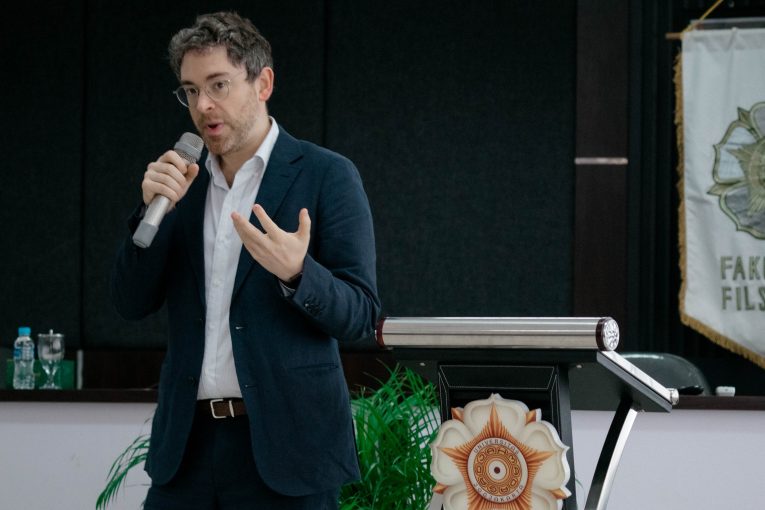
In celebration of World Philosophy Day, the Faculty of Philosophy at Universitas Gadjah Mada (UGM) hosted a public lecture on Monday, November 25, 2024. Held at the Auditorium of the Faculty of Philosophy, the lecture, themed “Why Philosophy Matters,” featured Prof. Brian D. Earp from the National University of Singapore. The event attracted hundreds of participants, including students, faculty, and members of the public, who eagerly engaged with the discussion on the ethics of life extension.
During his lecture, Prof. Earp discussed advancements in medical and scientific technologies aimed at extending human lifespan beyond its natural limits. He explained that while there are simpler approaches to increasing average life expectancy in various countries, deep moral and social questions arise regarding the implications of these efforts. A major issue he raised was whether large investments in life extension technologies can be justified when weighed against other priorities, such as improving the quality of life for the current generation.
“The fundamental philosophical question is about trade-offs and alternatives. How much of our resources should we allocate to improving the lives of the current generation compared to creating a better world for future generations that do not yet exist? Should those who are already here receive more moral attention than those who may only exist in the future?” Prof. Earp explained.
He also highlighted the role of philosophy in understanding the motivations behind humanity’s desire to live longer. Three main reasons were identified: emotional connections with family, the desire to leave a legacy, and the continuity of self-awareness. “Many governments are investing heavily in this research without deeply reflecting on why this might be good or bad,” he added.
Additionally, Prof. Earp linked the discussion to advancements in artificial intelligence, including the potential to create digital replicas (digital twins) of individuals. This technology raises new ethical questions about identity, the continuity of consciousness, and its implications for social interactions.
The public lecture provided fresh insights into how philosophy helps unravel complex questions involving modern technology, morality, and public policy. It served as a reminder of the crucial role philosophy plays in an era of rapid technological advancement, underscoring its relevance in addressing global challenges. “When we take a philosophical approach, we not only evaluate what can be done, but also why it should be done,” Prof. Earp concluded.
